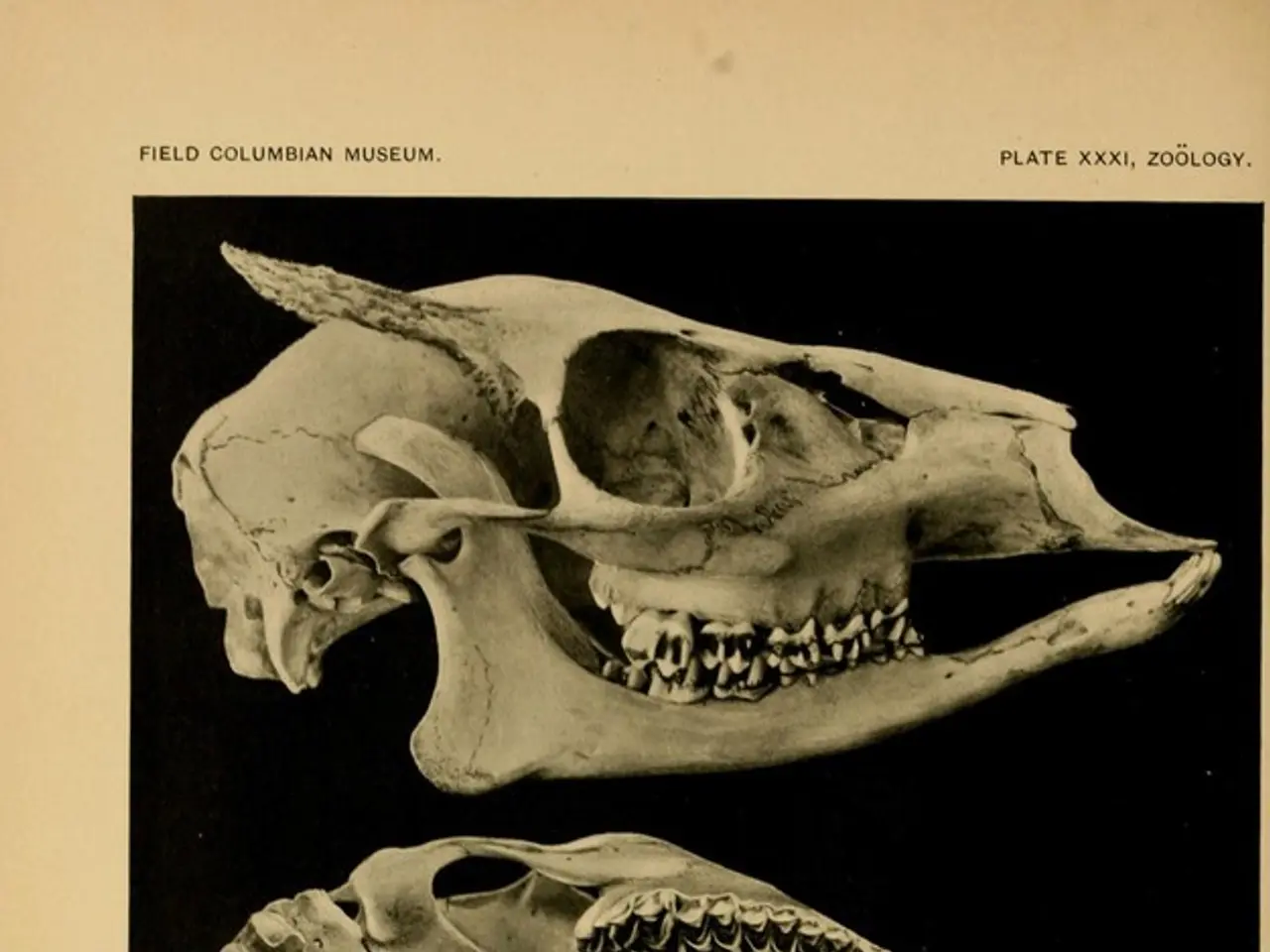Brain's Invisible Protectors: The Role of Microglia Revealed
In the realm of neuroscience, a significant focus has been on microglia – the brain-resident immune cells that play a pivotal role in maintaining cognitive functions and overall brain health.
Historically, microglia were identified as the innate immune cells of the central nervous system (CNS), distinct from peripheral macrophages. They originate from yolk sac primitive macrophages that migrate into the developing brain early in embryogenesis, differentiating into microglia to carry out essential roles in brain development, homeostasis, and disease.
Microglia are involved in various aspects of brain function, such as modulating neurogenesis, regulating synaptic organization, and acting as the brain’s immune surveillance cells. During brain development, microglia interact with neural progenitors and influence neural circuit formation and plasticity. In adulthood, they continue to maintain cognitive functions through ongoing surveillance, clearing debris, and molecular "trash" from the brain environment.
One of the most intriguing aspects of microglia is their role in neurodegenerative diseases. In cases like Alzheimer's, microglia help clear amyloid plaques and other toxic substances, limiting their accumulation and neurodegeneration. However, an overactive or prolonged microglial response can contribute to neuroinflammation and neurodegeneration, exacerbating inflammation and neuronal damage if over-activated.
In cases of brain injury or disease, microglia migrate to the site of injury, manage inflammation, and start the healing process. This dual role of microglia in both promoting healing and potentially causing harm highlights their complexity and importance in maintaining brain health.
As we age, changes in microglial function can impact cognitive health and contribute to increased neuroinflammation, a factor in age-related cognitive decline and diseases like Alzheimer's. Promoting the health of microglia through lifestyle choices or potential therapeutic interventions could help preserve cognitive function and delay the onset of age-related cognitive impairments.
Moreover, alterations in microglial function and neuroinflammation may be linked to the pathophysiology of mental health conditions like depression and schizophrenia. Understanding the signaling pathways that control microglial activation and response could open up new avenues for treating various neurological and psychiatric conditions.
In conclusion, the evolving understanding of microglia reveals them as dynamic effectors essential for both brain health and disease. Their gene expression, interactions with neurons, and responsiveness to environmental signals continue to be active research areas, offering promising prospects for future therapeutic interventions in neurological disorders.
- The importance of microglia in maintaining brain health extends to the domain of learning, as they are involved in regulating synaptic organization, a vital process for memory formation.
- Regular exercise, a key factor in health-and-wellness, is known to promote neuroplasticity, a process in which neurons can adapt and change their connections, and this is facilitated by the active role of microglia in the brain.
- In the realm of science, a significant focus has been on the role of microglia in brain health and cognition, especially in relation to medical-conditions such as Alzheimer's and other neurodegenerative diseases.
- Poor sleep, a common issue affecting many individuals, can impact brain health negatively by disrupting the normal function of microglia, which can in turn affect focus and cognition.
- The scientific community is continuously studying the role of microglia in neurodegenerative diseases, including their ability to remove toxic substances like amyloid plaques, a key aspect of brain health.
- As we age, changes in microglial function can lead to increased neuroinflammation, a factor that may contribute to age-related cognitive decline and neurodegenerative diseases like Alzheimer's.
- A better understanding of microglia's role in brain health and disease could potentially lead to new treatments for various neurological and psychiatric conditions, including mental health conditions like depression and schizophrenia.
- Supporting brain health through a focus on lifestyle choices, such as regular exercise and good sleep habits, could help preserve microglia function and potentially delay the onset of age-related cognitive impairments.
- The study of microglia in neuroscience is continually unveiling their complexity and their crucial role in promoting brain health, making neuroplasticity, memory, and cognitive function dependent on their normal function.






